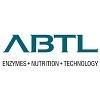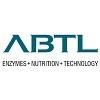
Content sponsored by:
ABTL Advanced Bio-Agro Tech Ltd
Re-thinking Litter Management in Poultry: Addressing Flies and Odour Beyond Conventional Interventions
Published: October 14, 2025
Source : ABTL

Litter management is a cornerstone of sustainable poultry production, directly impacting bird health, environmental safety, and community acceptance. Among the many challenges faced by poultry producers, fly infestation and persistent odour remain the most difficult to control. These issues not only affect farm hygiene but also pose risks of disease transmission, regulatory scrutiny, and strained relationships with neighbouring communities. While physical and chemical interventions are widely used, their limitations have become increasingly evident, prompting the need for more holistic solutions.
The Scale of the Problem
In layer farms, manure accumulates over extended periods. High organic content, combined with moisture and warmth, provides an ideal environment for microbial decomposition. This decomposition releases ammonia and volatile organic compounds (VOCs), causing characteristic odours. Simultaneously, manure becomes a breeding ground for flies, especially the housefly (Musca domestica), which thrives in moist litter. These flies are more than a nuisance; they act as mechanical vectors for pathogens such as Salmonella, E. coli, & Campylobacter. Odour emissions, meanwhile, not only reduce the quality of farm air but also raise complaints from nearby communities, often escalating into regulatory challenges.
Physical Interventions and their Limitations
Producers have long relied on physical interventions such as:
• Frequent manure removal to reduce breeding material.
• Ventilation systems to disperse odour and maintain drier litter.
• Litter drying and aeration using mechanical turners.
• Screens and traps to reduce adult fly populations.
While these practices offer temporary relief, they often fail under real-world conditions. For instance:
• Frequent manure removal is labour-intensive and costly, particularly in large-scale operations.
• Ventilation disperses odour but does not eliminate its source. • Mechanical drying is inconsistent, especially during humid or rainy seasons.
• Screens and traps reduce adults but do not address the root cause, fly breeding in litter.
• Ventilation disperses odour but does not eliminate its source. • Mechanical drying is inconsistent, especially during humid or rainy seasons.
• Screens and traps reduce adults but do not address the root cause, fly breeding in litter.
Chemical Interventions and their Drawbacks
Chemical interventions, including insecticides, larvicides, disinfectants, and litter amendments, are common tools in poultry waste management. However, their limitations are increasingly recognized: • Insecticide resistance develops rapidly in fly populations, reducing effectiveness over time.
• Chemical residues may contaminate litter, raising concerns for composting.
• Ammonia-binding chemicals like alum or lime can lower odour temporarily but require repeated application, adding to costs.
• Overreliance on chemicals may disrupt the microbial balance of litter, sometimes worsening odour generation.
• Moreover, environmental and consumer concerns around chemical residues and sustainability are pushing farms to move away from sole reliance on these methods.
• Chemical residues may contaminate litter, raising concerns for composting.
• Ammonia-binding chemicals like alum or lime can lower odour temporarily but require repeated application, adding to costs.
• Overreliance on chemicals may disrupt the microbial balance of litter, sometimes worsening odour generation.
• Moreover, environmental and consumer concerns around chemical residues and sustainability are pushing farms to move away from sole reliance on these methods.

The Recurrent Fly Cycle: Why Larval Control is Critical
Flies are persistent because of their rapid and recurring life cycle. A single housefly can lay hundreds of eggs on moist manure, which hatch into larvae (maggots) within 24 hours. These larvae then pupate and emerge as adults in less than 10 days under favourable conditions. As long as litter provides moisture, warmth, and nutrients, this cycle continues relentlessly.
Targeting only adult flies is a short-lived strategy. Even if adults are eliminated, new generations emerge within days, re-establishing the infestation. The only sustainable way to control flies is to break the cycle at the larval stage. Interventions that dry litter, stabilize nutrients, or directly suppress larval development can drastically reduce fly populations at their source. By focusing on larvae, producers can prevent future outbreaks rather than constantly chasing adult flies with traps and insecticides.

Why Current Approaches Fall Short
The persistence of fly and odour issues highlights a critical point: physical and chemical interventions primarily address symptoms, not causes. Flies proliferate because manure remains nutrient-rich and moist enough to sustain their lifecycle. Odours persist because microbial breakdown of uric acid and proteins continues unchecked. As long as litter remains biologically unstable, these problems will resurface despite repeated interventions.
Moving Toward Sustainable Management
The limitations of current strategies underscore the need for integrated, biology-centred approaches that stabilize manure at the source. By modifying microbial activity and nutrient dynamics within the litter, it becomes possible to:
• Reduce ammonia release and odour formation.
• Limit the conditions favourable for fly breeding.
• Improve litter value as a safe, nutrient-rich organic fertilizer.
Such approaches not only provide long-lasting results but also align with the poultry industry's push toward sustainability, biosecurity, and circular economy practices.

ABTL's Integrated Protocol
To overcome the limitations of conventional methods, many farms are now adopting biological interventions that harness the power of microbes and enzymes to stabilize litter. Among the proven approaches are ABTL's flagship solutions - Flyzyme and Envirozyme, which are applied directly on the litter.
• Flyzyme: A microbial–enzymatic formulation that accelerates litter decomposition while disrupting the housefly life cycle. By enhancing the breakdown of organic matter, Flyzyme creates conditions that are unfavourable for maggot survival, effectively killing larvae and preventing their progression into adult flies. This approach tackles the problem at its source, ensuring long-term control over fly populations.
• Envirozyme: A specialized blend of enzymes and beneficial microbes aimed at reducing odour emissions from poultry litter. By stabilizing nutrients and limiting the microbial breakdown processes that release ammonia and volatile organic compounds, Envirozyme significantly lowers foul smells. This not only improves in-house air quality for birds and workers but also minimizes complaints from surrounding communities.
Together, these biological tools provide a dual benefit - Flyzyme strengthens decomposition and halts fly breeding at the larval stage, while Envirozyme tackles odour by stabilizing litter nutrients.
Supporting Evidence from Field Trials
Field evaluations conducted under commercial poultry farm conditions have validated the efficacy of these biological interventions.

These outcomes demonstrate that combined microbial enzymatic interventions such as Flyzyme + Envirozyme can significantly improve litter quality by achieving nutrient stabilization (optimum C:N ratio), odour reduction, and fly control at the larval stage; results not consistently attainable with physical or chemical interventions alone.
Conclusion
Poultry litter management is more than a sanitation task; it is a critical determinant of farm performance, environmental impact, and community relations. While physical and chemical interventions remain widely used, their shortcomings in controlling flies and odour are increasingly evident. Tackling these challenges at their biological root, rather than applying temporary fixes, represents the path forward for resilient and sustainable poultry production
Related topics:
Recommend
Comment
Share

30 de noviembre de 2025
Litter condition is directly related to water spillage, due to faulty equipment, faulty management, and carelessness. The correct height of the drinkers and the level of water are important.
Nipple drinkers with drip cups work well even in litter if perching is avoided carefully. Leakages, even drop by drop, must be attended to and stopped as soon as found. Selling gut health products should be secondary.
Recommend
Reply

28 de noviembre de 2025
Your results are very encouraging. Has this research been published in a peer-reviewed journal? If, kindly share the DOI.
Recommend
Reply

Would you like to discuss another topic? Create a new post to engage with experts in the community.





